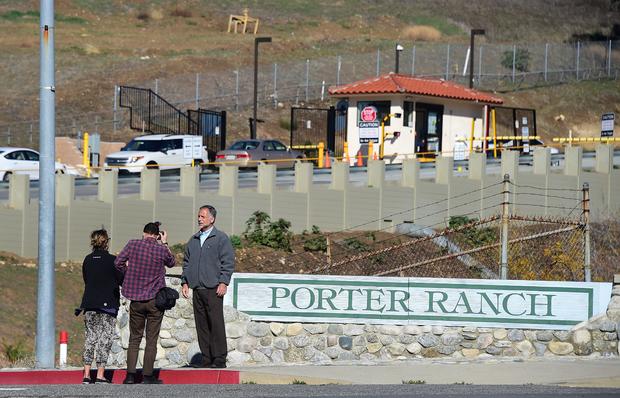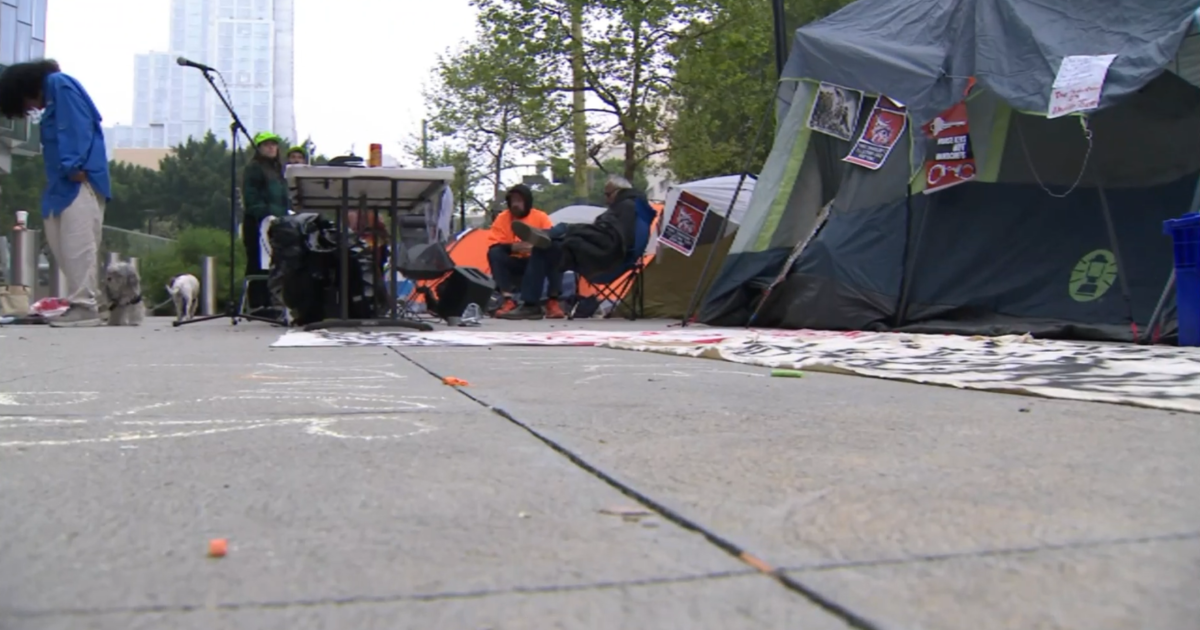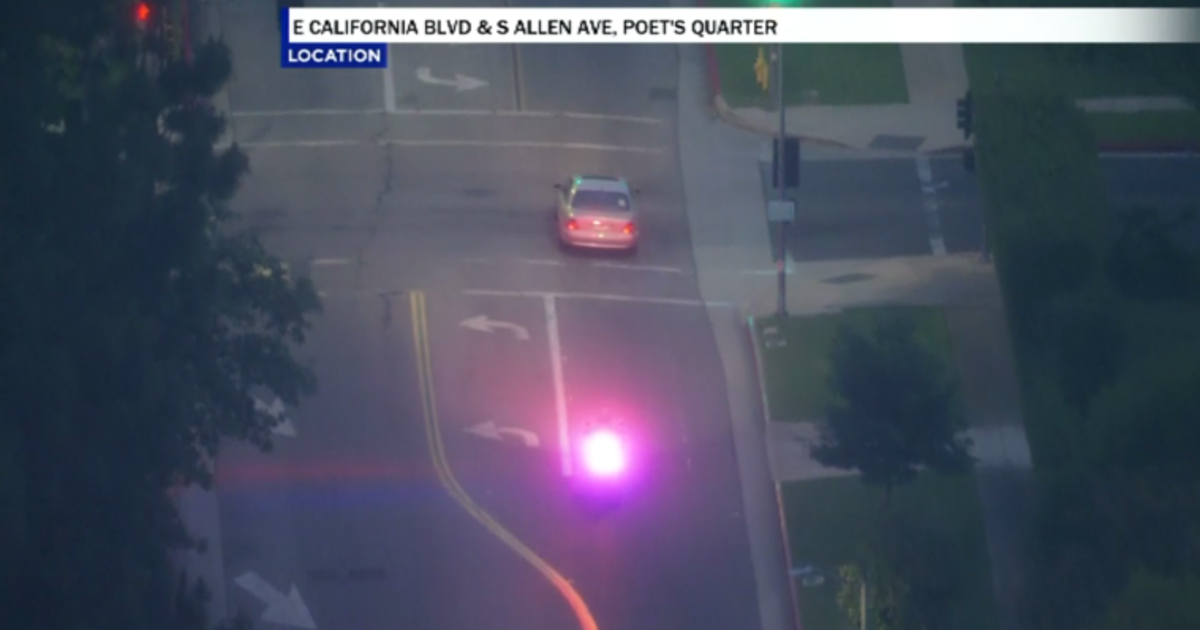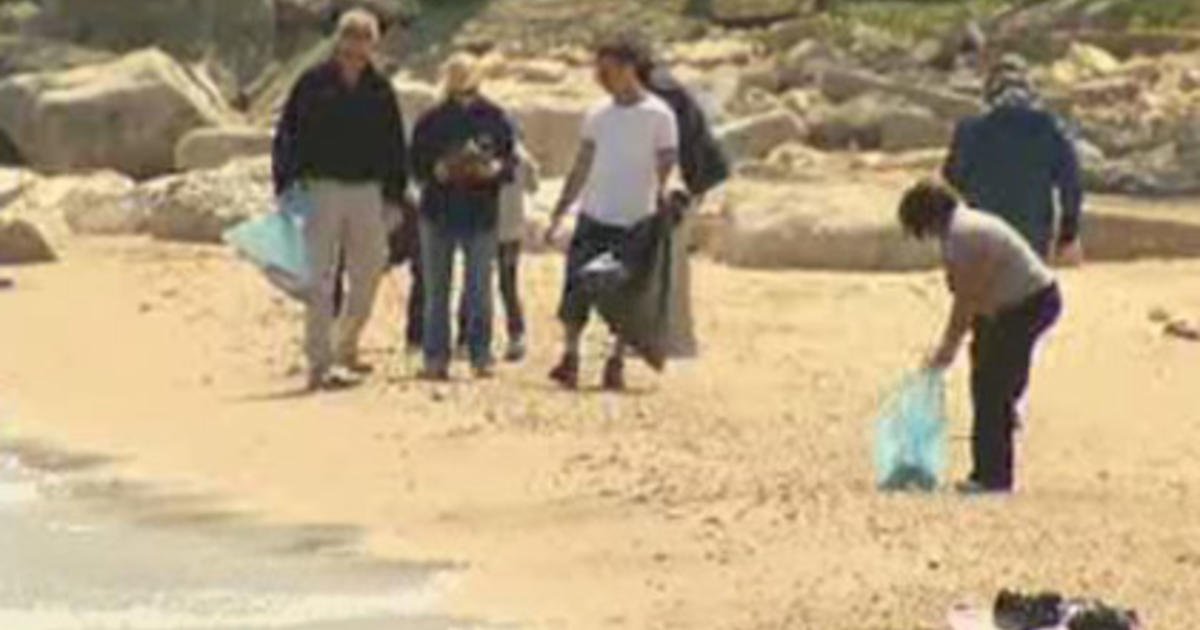Ruptured Well Casing, Failed Safety Practices To Blame For Aliso Canyon Methane Leak, Report Finds
PORTER RANCH (CBSLA/AP) – A ruptured well casing and a lack of proper safety regulations were the cause of a 2015 Aliso Canyon methane gas leak which forced thousands of Porter Ranch residents to flee their homes in what became known as the largest methane leak in U.S. history, according to the findings of an independent report released Friday.
The report determined that a rupture in an outer 7-inch well casing which caused the massive leak at the Aliso Canyon underground storage facility operated by the Southern California Gas Company was caused by corrosion from contact with groundwater.
The report also found that SoCalGas failed to conduct follow-up inspections or analysis for more than 60 previous casing leaks at Aliso Canyon which occurred from the 1970s all the way to October 2015, when the massive leak began.
The report was completed by the consulting firm Blade Energy Partners at the direction of both the California Public Utilities Commission (CPUC) and the state Division of Oil, Gas, and Geothermal Resources (DOGGR).
Blade determined that SoCalGas "lacked any form of risk assessment focused on well integrity management and lacked systematic practices of external corrosion protection and a real-time, continuous pressure monitoring system for well surveillance."
Updated well safety practices and regulations that have since been adopted by the DOGGR would have addressed "most of the root causes of the leak," the report found.
Beginning in October 2015, the Aliso Canyon underground storage facility spewed about 109,000 metric tons of methane into the air and led to the temporary relocation of about 7,000 Porter Ranch-area residents. The leak was not capped until February 2016.
The leak led to mass complaints of health issues ranging from headaches and nosebleeds to nausea and cancer; issues that persisted after the leak was capped.
Gas injections resumed at Aliso Canyon in July 2017 despite court efforts from Los Angeles County officials to block them.
In August of 2018, officials with the state of California and the city of L.A. reached a $119.5 million settlement with SoCalGas over the methane leak.
The leak occurred in an over 60-year-old well, one of 115 wells at a vacant oil field that was converted in the 1970s to store gas a mile-and-a-half underground where crude oil had been removed. Aliso Canyon is the largest natural gas storage site in the West.
SoCalGas has spent more than $1 billion related to the blowout with the majority of that going to temporarily relocate the thousands of Porter Ranch families, according to filings with the U.S. Securities and Exchange Commission.
In response to the report, SoCalGas issued a statement which read:
"The release of this report marks an important milestone in helping the region and California move forward from the Aliso Canyon natural gas leak. The leak was an industry changing event resulting in the development and implementation of enhanced safety regulations and practices.
"Today Aliso Canyon is safe to operate and Blade's report indicates the industry leading safety enhancements and new regulations put in place after the leak should prevent this type of incident from occurring again.
"While we are still reviewing the report released today, we appreciate Blade acknowledging SoCalGas' full cooperation and support.
"Within two days of discovering the leak, we brought in Boots & Coots, the world's preeminent well control company, best known for controlling hundreds of wells during the Persian Gulf War. The leak at Aliso Canyon was stopped on February 11, 2016.
"In the months after the leak was stopped, SoCalGas and state regulators, who worked in consultation with independent experts at the U.S. Department of Energy's National Labs, conducted a comprehensive safety review at Aliso Canyon. That review and safety enhancements SoCalGas completed have been recognized as the most rigorous and comprehensive in the nation.
"The Blade report confirms SoCalGas complied with gas storage regulations in existence at the time of the leak and that the related compliance activities conducted prior to the leak did not find indications of a casing integrity issue. In Blade's opinion, there were measures, though not required by the gas storage regulations at the time, that could have been taken to aid in the early identification of corrosion and that, in their opinion, would have prevented or mitigated the leak.
"We look forward to reviewing the report in detail and to receiving the supplementary reports, so we can better understand the technical basis for some of Blade's conclusions."
(© Copyright 2019 CBS Broadcasting Inc. All Rights Reserved. The Associated Press contributed to this report.)




